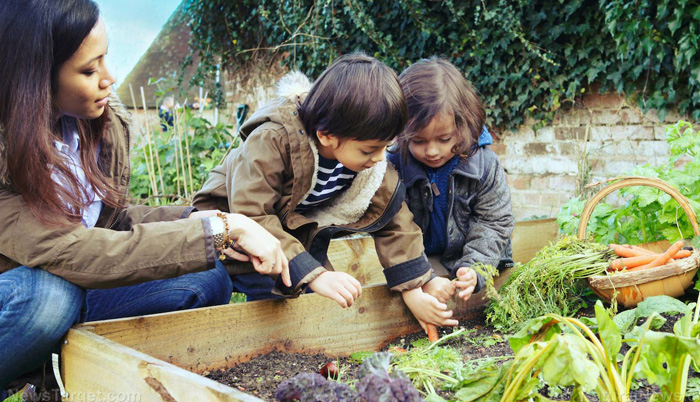![]() Home > Lifestyle
Home > Lifestyle
Children Have Pitiful Knowledge Of Where Food Comes From

![]() September 8th, 2017 | 10:09 AM |
September 8th, 2017 | 10:09 AM | ![]() 5619 views
5619 views
NATURALNEWS.COM
Today’s children show a limited knowledge about food and where they come from, according to a survey carried out by Berkshire-based Panasonic U.K. The firm examined 1,000 children aged four to 12 to assess their general food knowledge.
The findings revealed that one in five children did not know that eggs came from animals, while more than one in 10 children thought chocolate bars grew on trees. The researchers also found that 20 percent of children were not able to identify a raspberry. This, despite one in four children having consumed the fruit just a week prior to testing.
The survey also showed that a third of children were not able to differentiate a mango from an apple. However, the children appeared to be more familiar with foods commonly bought whole such as avocado. In fact, 75 percent of children were able to identify the fruit. The children easily identified foods that were usually featured as emojis, the researchers said.
Moreover, children living in the cities were more likely than their rural counterparts to be adventurous in their food choices. The survey noted that about a third of children who regularly ate tropical fruits such as mango or pineapple reside in London. However, children living in urban areas showed poorer knowledge on food sources while rural children were more likely to understand that eggs came from animals.
“Fresh produce is such an important part of a child’s diet as it really does help aid development both physically and mentally throughout the initial stages of life, as well as benefiting the quality of their lifestyle in many ways. Even though modern food trends have enabled many kids to eat more adventurous ingredients compared with the generation before. The avocado for example has experienced a huge resurgence, enabling over three quarters (76 per cent) of four to 12-year-olds being able to identify this vegetable easily. However, there is still a lack of understanding over some of the simplest ingredients,” nutritionist Daniel O’ Shaughnessy told Daily Mail online.
Other surveys show disconcerting results on kids’ food knowledge
The recent poll was only the most recent of the many surveys reflecting poor food knowledge among children.
Just last year, a survey conducted by Cadbury revealed that a third of children believe cows eat pizza and sandwiches, while 20 percent of children aged five think chocolates were made from eggs.
The survey also showed that 11 percent of children think milk came straight from the supermarket, while nine percent believe plants are vital ingredients in chocolate production. (Related: Majority of consumers confused about “healthy” foods.)
To address this, the company created an informative video to educate children on where their foods come from.
“While some of the findings are amusing, it has highlighted that more needs to be done to make farming and food provenance as important to children as it is to their parents. We hope the video will help parents show their children about this in an enjoyable way,” Cadbury’s Catherine Jones said in a Daily Star article.
Another survey carried out by Linking Environment and Farming (Leaf) found that one in five children did not know that bacon comes from pigs. The poll also showed that one in 20 children think pigs produce cheese.
In addition, the survey revealed that five percent of children think strawberries grow inside the fridge, while six percent believe the fruits grow on trees. The researchers also found that 28 percent of children did not know that carrots grow underground, while nine percent think the vegetables grow on a bush.
“Results show that there is still a disconnect with farming for today’s youngsters, as well as for many parents. We must all work together to ensure that this does not become an increasing trend,” said Leaf’s Annabel Shackleton.
Source:
courtesy of NATURALNEWS
by Russel Davis
If you have any stories or news that you would like to share with the global online community, please feel free to share it with us by contacting us directly at [email protected]